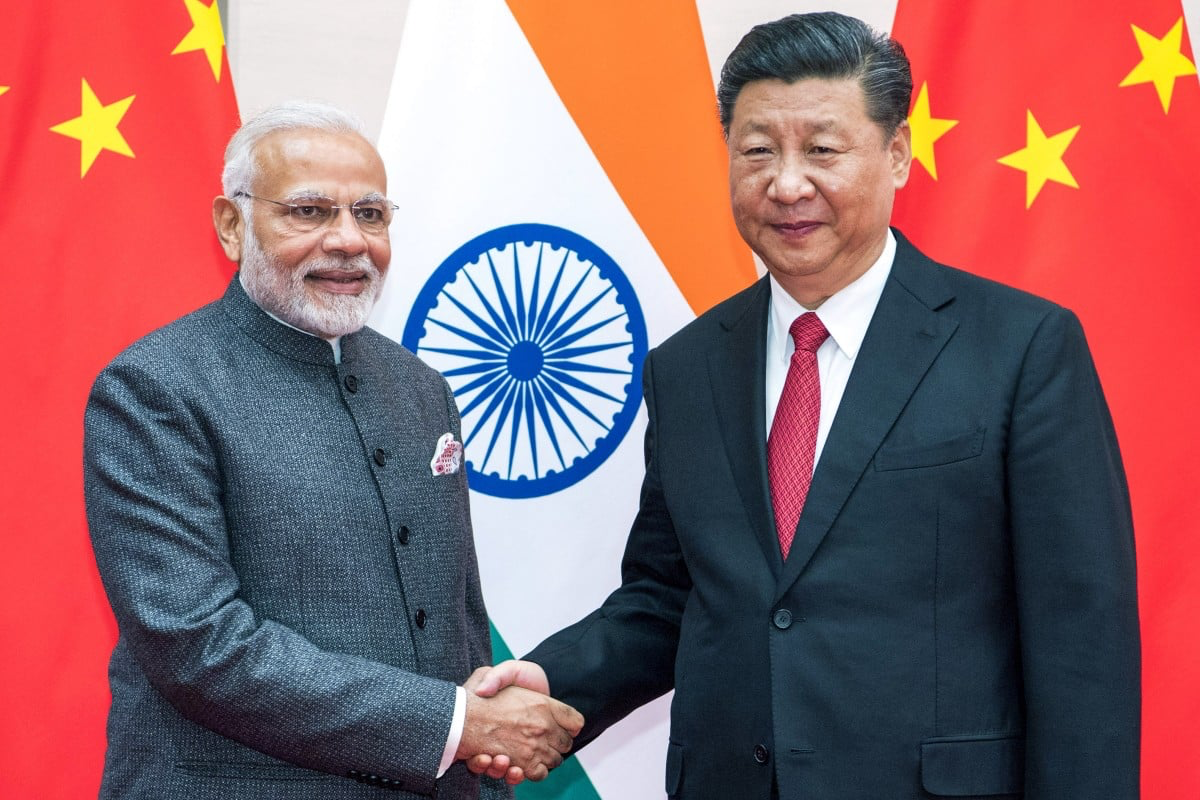https://harici.com.tr/trumpin-ticaret-savasi-karsisinda-cin-ve-hindistan-iliskilerini-yeniden-insa-ediyor/
China and India rebuild their relations in the face of Trump's trade war

From the new border agreement to the resumption of direct flights and the deepening of economic cooperation, China and India are entering a new diplomatic era after Chinese Foreign Minister Wang Yi's first visit to New Delhi in three years.
Relations may be further softened with the visit of Indian Prime Minister Narendra Modi to Tianjin at the end of the month. Modi will attend the Shanghai Cooperation Organization summit by going to China for the first time in seven years, and he is expected to meet with Chinese President Xi Jinping on this occasion.
The two neighboring countries, which have been in mutual distrust for a long time, want to see improvements in their relations at a time when Washington is increasing customs duty pressure.
During Wang's two-day visit to New Delhi this week, the two sides agreed to begin talks in the eastern and central border regions, in addition to the ongoing western Himalayan border following the deadly clash between Chinese and Indian troops in the Galwan Valley in 2020.
The Indian press also reported that Beijing approved the export of rare earth elements to India. This is considered a strategic move considering the key role of these minerals in China's trade war with the United States.
Harsh Pant, an international relations professor at King's College London, said New Delhi and Beijing were encouraged to negotiate by “many factors.”
Speaking to the South China Morning Post, Pant said, "There is an intention to normalize or revive relations that have become unsustainable after the border crisis."
But according to Chietigj Bajpaee, South Asian senior research fellow at Chatham House's Asia-Pacific Program, this could be a “cold peace.”
“This means that a large-scale conflict is unlikely, but a permanent convergence is also unlikely,” he said. "For both countries to move towards a closer relationship, there needs to be more momentum in solving the fundamental problems in bilateral relations," he added.
He Xianqing, a research associate at the National South China Sea Research Institute, also agrees with this view.
"China and India have many overlapping interests, so their future relationship will inevitably face challenges," He said, pointing to the unresolved border dispute and their rivalry in the Indo-Pacific and Global South.
Although the ternsions on the border have subsided – the 3,488 km (2,167 mi) border line that separates the two countries and has been controversial for decades – both sides are continuing infrastructure construction in the strategic areas of the border.
India has also strengthened its relations with the United States in recent years before trade relations deteriorated. It has also intensified its relations with the Philippines, which are increasingly in conflict with Beijing due to territorial disputes in the South China Sea.
New Delhi is also concerned about China's growing presence in South Asia.
Washington's customs duty pressure emerged as an important factor in the reorganization of Beijing-New Delhi relations. The USA imposed an additional 25 percent customs duty on Indian goods, citing that India continued to import oil from Russia. Thus, as of August 27, the total customs duty increased to 50 percent.
The US also increased its cooperation with India's rival Pakistan in the field of security and counter-terrorism last week.
According to He, India may be “using China to negotiate with the US”.
For New Delhi, Beijing's close relations with Islamabad – including the flagship China-Pakistan Economic Corridor (CPEC) project – remain a source of concern. The last Pakistan-India conflict was marked by Chinese jets given to Islamabad.
Foreign Minister Wang visited Afghanistan and Pakistan after his trip to India this week and met with his interlocutors. China has pledged to continue its cooperation with the two countries, especially through the multi-billion dollar CPEC, which India opposes due to its long-running conflict with Pakistan in Kashmir.
On the other hand, there are also those who think that there are opportunities for wide cooperation between China and India on global, economic and regional issues. According to He, who said, "Differences are normal," the key to maintaining momentum in relationships will be "open communication".